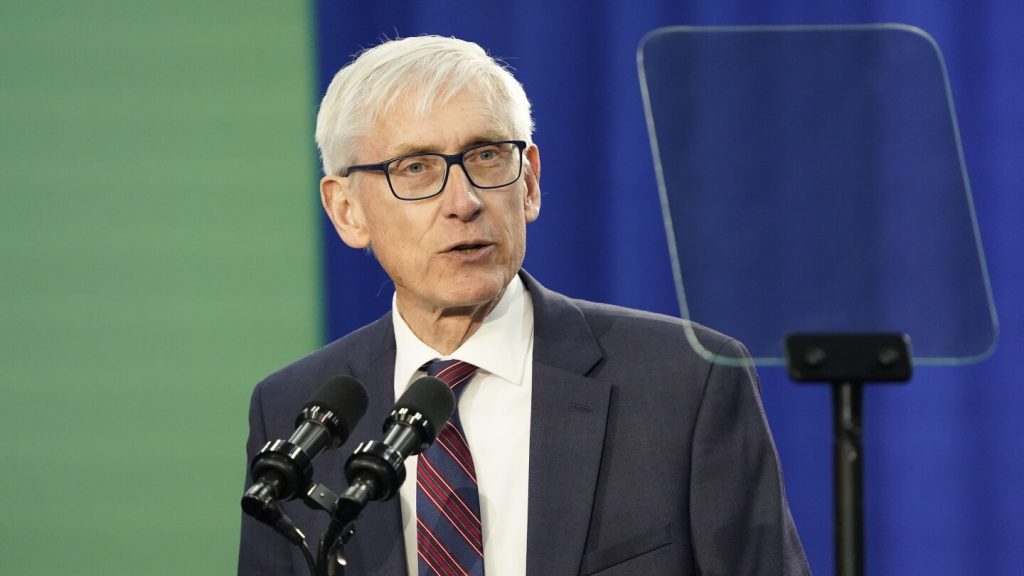Wisconsin Governor Tony Evers vetoed a Republican bill aimed at creating grants to combat pollution from “forever chemicals” known as PFAS. Evers also called a rare meeting of the Legislature’s Joint Finance Committee to approve spending $125 million to address contamination from these chemicals. Both Evers and Republicans agree that tackling PFAS pollution is a priority, but they have not been able to reach a consensus on the best course of action. Evers expressed frustration over the delay in approving the funds and emphasized the importance of addressing the issue promptly.
Republican Senator Eric Wimberger, who co-sponsored the bill, criticized Evers’ veto as “shameful” and accused the governor of holding the funding hostage. Evers defended his decision by stating that the bill was not sufficient in addressing PFAS contamination and reiterated the need for releasing the allocated $125 million. The bill proposed using the funds for grants to conduct testing for PFAS in water treatment plants, wells, and properties affected by contamination. Evers’ veto was based on concerns that the bill would limit the Wisconsin Department of Natural Resources’ authority to hold polluters accountable.
Environmental groups supported Evers’ veto, arguing that the bill’s limitations on enforcement by the Department of Natural Resources were problematic. Republicans defended the bill by suggesting that the restrictions were necessary to protect landowners who were not responsible for PFAS pollution on their properties. PFAS are man-made chemicals that do not break down easily in nature and have been linked to various health problems. Municipalities in Wisconsin, including Marinette, Madison, Wausau, and the town of Campbell, are grappling with PFAS contamination in their groundwater, highlighting the urgency of addressing this issue.
Evers’ repeated calls for releasing the $125 million in funding have been met with resistance from Republican lawmakers. The Governor emphasized the importance of taking swift action to address the PFAS contamination, particularly in communities that are already facing the impact of pollution. The vetoed bill would have provided support for municipalities, private landowners, and waste disposal facilities to address PFAS contamination. Evers’ decision to veto the bill reflects his commitment to prioritizing public health and environmental protection in Wisconsin.
Despite the ongoing disagreement between Evers and Republicans on the best approach to combat PFAS pollution, both sides acknowledge the significance of addressing this issue. The $125 million earmarked for tackling contamination remains a point of contention, with Evers pushing for its immediate release and Republicans raising concerns about the bill’s provisions. As the debate continues, communities affected by PFAS contamination continue to face challenges in ensuring access to clean and safe drinking water. The need for swift action on this issue remains a top priority for Wisconsin leaders and stakeholders.


